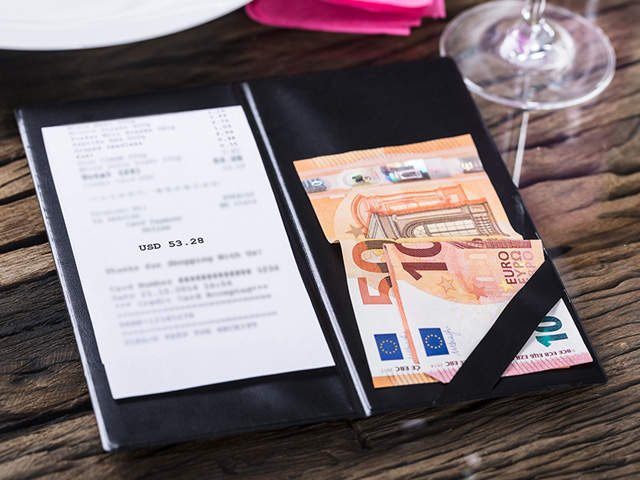I, me, you and I, him and me... (B1)
Personal pronouns (333)
Osobní zájmena
Osobní zájmena – procvičování:
Do you have a date with John today? – Yes. I'm going climbing with him!
|
Me I'm going climbing with he him.
|


Osobní zájmena (personal pronouns) mají dva tvary:
|
I, you, he, she, it, we, they (= základní tvar)
|
|
me, you, him, her, it, us, them
|
Osobní zájmena – obecná pravidla:
- Podmět → I, HE, THEY...:
I like John.
- Předmět → ME, HIM, THEM...:
John likes me.
- Za předložkou → ME, HIM, THEM...:
John wants to go out with me.
- Samostatně → ME, HIM, THEM...:
Who will go to the beach? – Me!








Dvě osobní zájmena (...and...) – obecná pravidla:
- Podmět → HE AND I/HIM AND ME:
He and I are friends.Him and me are friends.
- Předmět/za předložkou → HIM AND ME:
John likes him and me.John wants to go out with him and me.
- YOU bývá na prvním místě:
you and him
- I/ME bývá na druhém místě:
him and I








I, he, they... = podmět
me, him, them... = předmět
Jako podmět použijeme I, HE, THEM...:
|
I'd like a coffee, please.
|
|
He's coming tonight, isn't he?
|
|
They saw Nick.
|
Jako předmět použijeme ME, HIM, THEM...:
|
Could you make me a coffee?
|
|
Tom will pick him up from the airport.
|
|
Nick saw them.
|
Where are my pyjamas? I can't find them.
| Podmět: |
I can't find them.
|
| Předmět: |
I can't find them.
|


About me, without you, for him...
Za předložkou použijeme ME, HIM, THEM...:
|
Don't worry about me, I'll be fine.
|
|
It's not going to be the same without him.
|
|
Should we wait for them or should we leave?
|
Neříkáme obvykle: about I, without he, for they
Tell us something else about her. Is there a spark between you and her?
| Za předložkou: |
|
about her
|
|
between you and him
|


Where's everybody? Are they still looking for me?
|
for I me
|


...than me/I.
...than I am.
Po THAN používáme ME, HIM, THEY... nebo I, HE, THEY...:
| Hovorovější | Formálnější |
|---|---|
|
Carol's older than me.
|
Carol is older than I.
|
|
You sing better than him.
|
You sing better than he.
|
Pokud je za THAN sloveso, používáme I, HE, THEY...:
|
Carol is older than I am.
|
|
You sing better than he does.
|
Nikoliv: than me am, than him does
Our sister has travelled a lot more than us.
| ...than us. |
| ...than we. |
| ...than we have. |
| ...than us have. |


Me? You? Him?
Samostatně a v krátkých větách bez slovesa používáme ME, HIM, THEM...:
|
Who did it? Him?
|
|
I think she's attractive. – Her?
|
|
Kieran is a huge fan of rugby. – Me too.
|
|
We can't stand this noise. – Me neither.
|
|
Someone will have to do it. – Definitely not us!
|
|
Chris made the mistake, not them.
|
Who won? Me? – No, it looks like he was faster.
|
I Me?
|


It was me/I.
Po slovesu BE používáme ME, HIM, THEM... nebo I, YOU, THEM:
| Hovorovější | Formálnější |
|---|---|
|
Did you do it? – No, I swear it wasn't me.
|
Did you do it? – No, I swear it was not I.
|
|
Am I talking to Chris? – Yes, this is him.
|
Am I talking to Mr. Bennet? – Yes, this is he.
|
|
It's them who has to say sorry.
|
It is they who must apologise.
|
It was him who fixed your phone.
| Hovorovější: |
It was him.
|
| Formálnější: |
It was he.
|


V dovětku a dalších podobných krátkých větách tvořených zájmenem a pomocným slovesem použijeme po BE základní tvar. To samé platí také pro ostatní pomocná slovesa (did, do, has, could...):
|
Matthew was late again, wasn't he?
|
|
I didn't leave the door open, did I?
|
|
I'm exhausted and so is he.
|
|
Ben isn't hungry and neither are they.
|
|
Ashley couldn't help you, neither could they.
|
Neříkáme: wasn't him, did me, so is him
Michelle overslept this morning, didn't she? Tommy didn't set the alarm, did he?
| ...didn't her she? |
| ...did him he? |


you and I/you and me = podmět
you and me = předmět
Pokud jsou v podmětu dvě osobní zájmena, můžeme použít oba tvary:
| Hovorovější | Formálnější |
|---|---|
|
You and me should stay.
|
You and I should stay.
|
|
Her and him are Mexican.
|
She and he are Mexican.
|
It seems like he and she have a lot of fun in Australia.
| Formálnější: |
he and she
|
| Hovorovější: |
him and her
|


Pokud jsou v předmětu nebo za předložkou dvě osobní zájmena, používá se obvykle ME, HIM, THEM...:
|
Did Adam see him and me together?
|
|
I have nothing against you or them.
|
Could you order a beef burger and fries for her and me?
|
for her and me
|
| for she and I |


you and...
...and me/I
Pokud používáme dvě osobní zájmena, YOU bývá na prvním místě:
|
you and I
|
|
you and her
|
I/ME bývá na druhém místě:
|
he and I
|
|
them and me
|
You and me should go bodyboarding again. How about next Friday?
| Hovorovější: |
you and me
|
| Formálnější: |
you and I
|


Osobní zájmena – nejdůležitější body:
| Podmět: | I like John. |
| Předmět: | John likes me. |
| Za předložkou: | John will go out with me. |
| Samostatně: | Who will go out? – Me! |
| Dvě zájmena: | he and I |
| him and me | |
| YOU – 1. místo: | you and him |
| I/ME – 2. místo: | him and me |
Doporučujeme si procvičit osobní zájmena (personal pronouns) v našich cvičeních.
